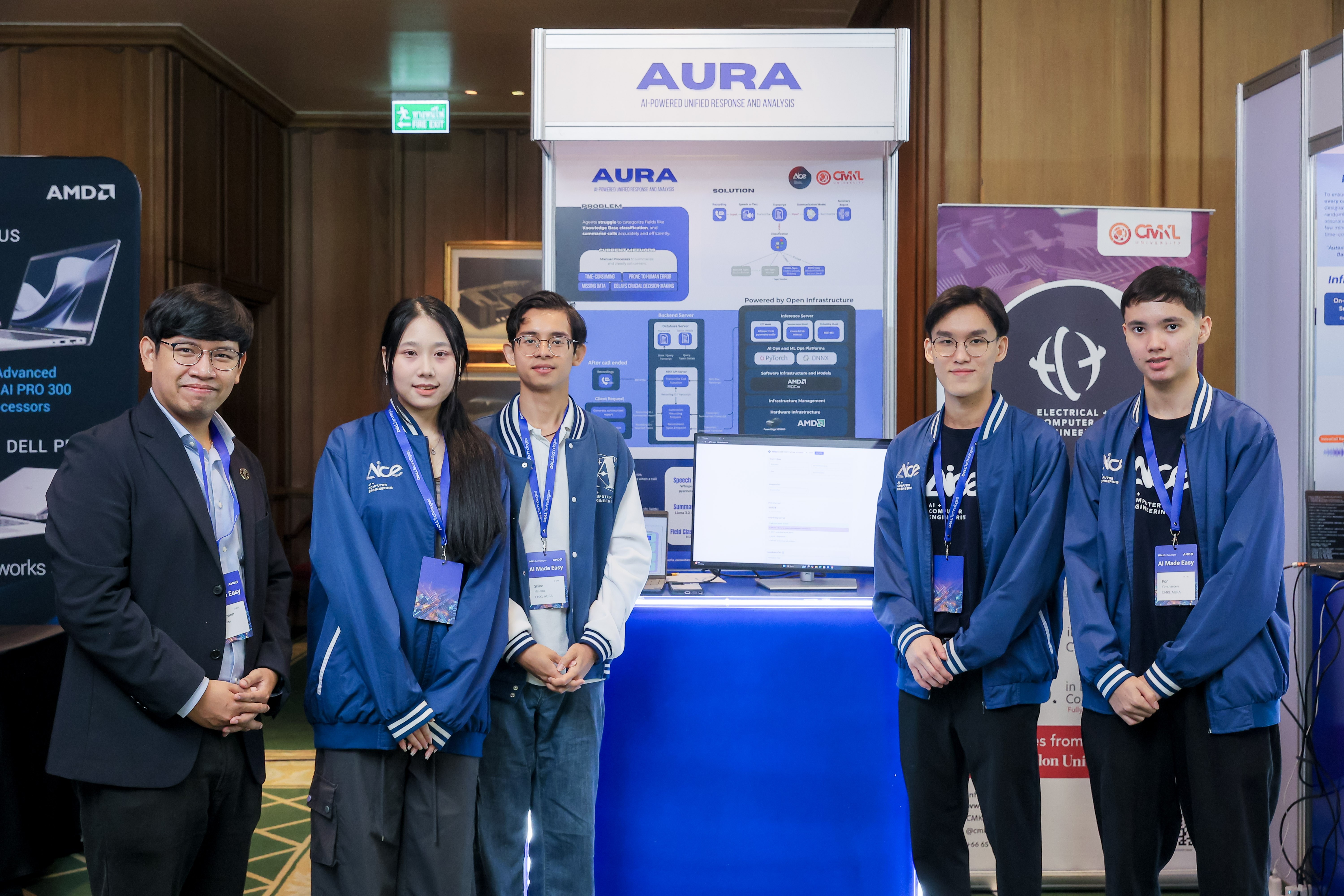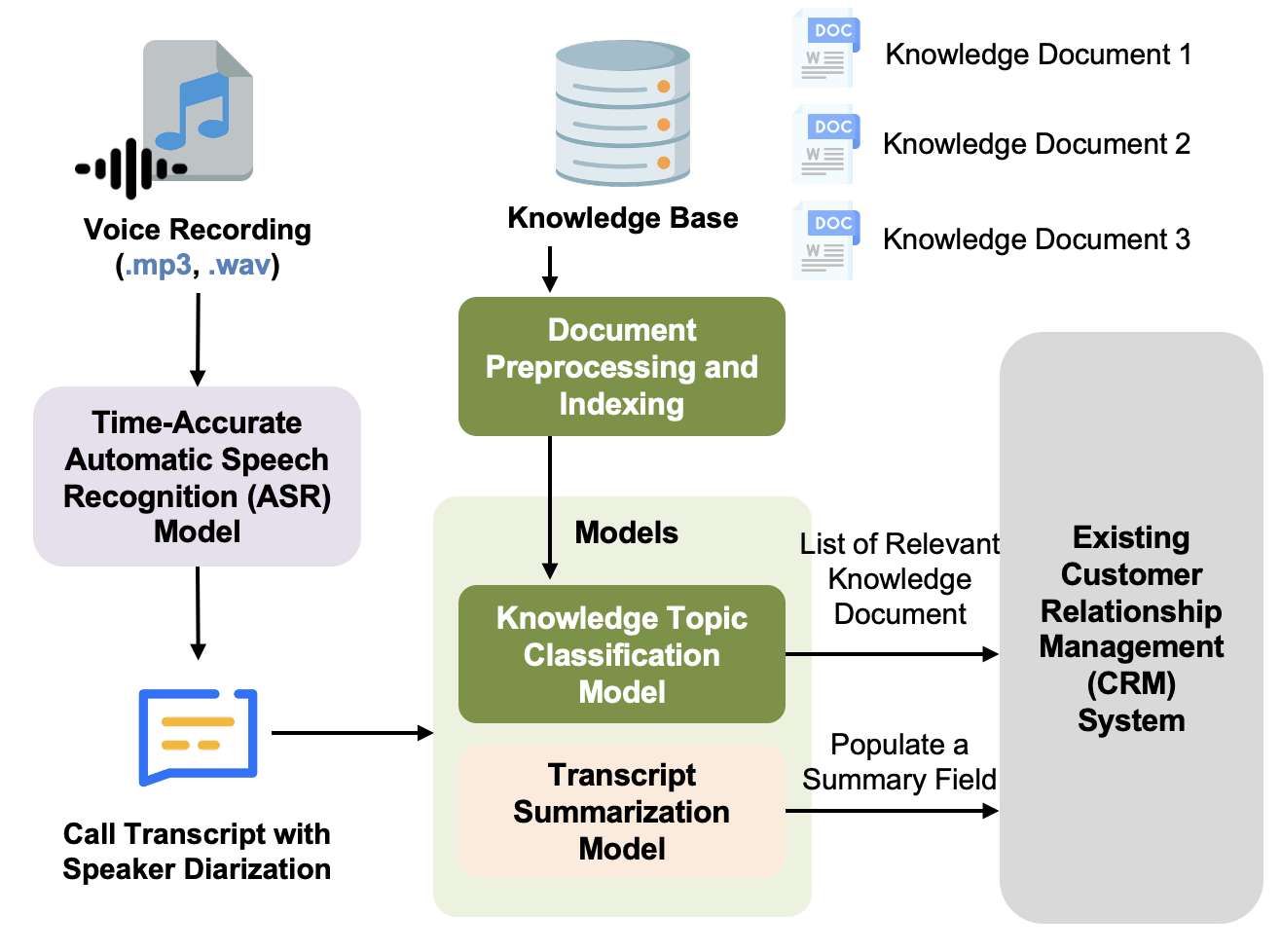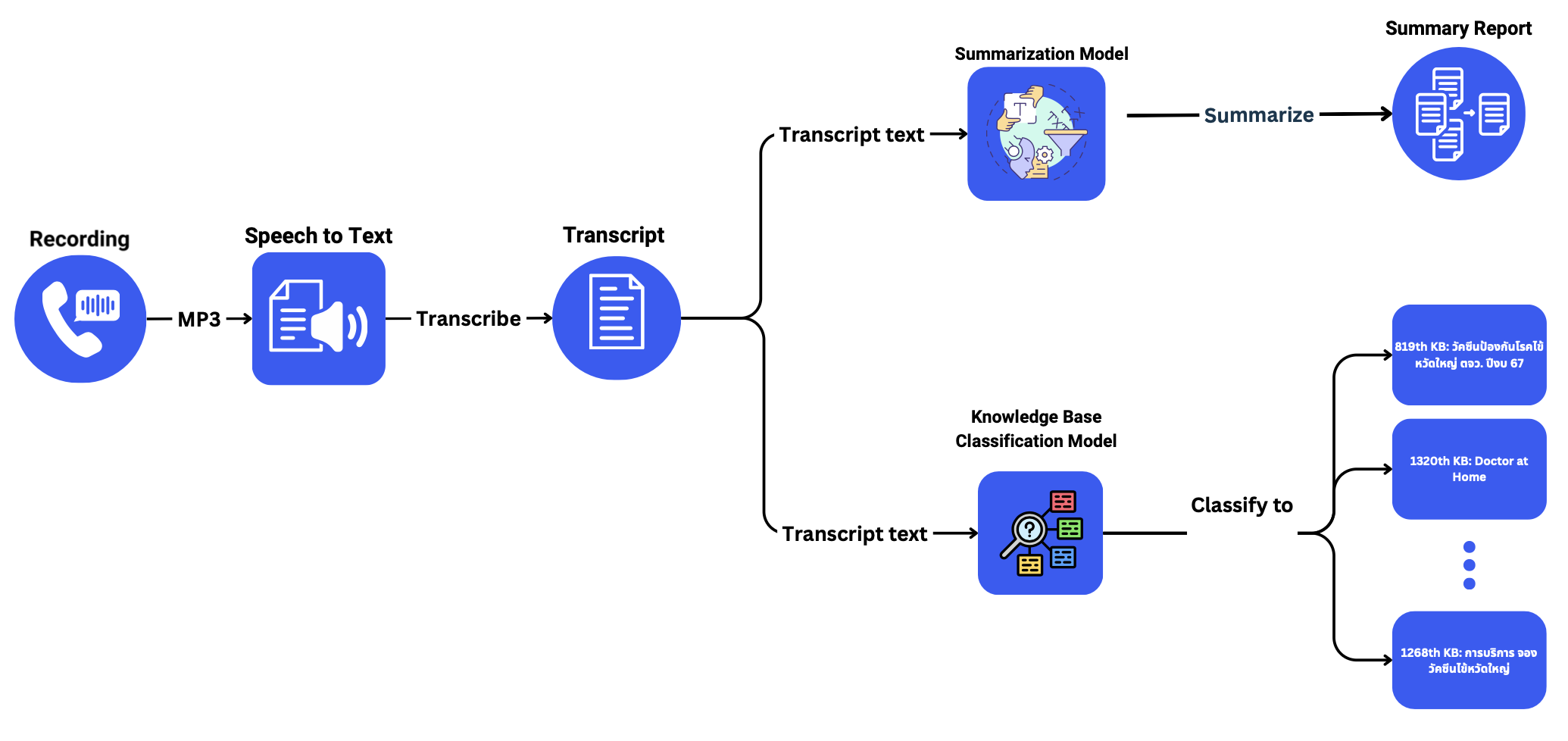AURA: AI-Powered Unified Response and Analysis
AI-Powered Automated Knowledge Classification and Summarization of Contact Center Call Recordings.



Project Abstract
Agents in contact centers are required to fill in call information in a Customer Relationship Management (CRM) system.Agents are unable to completely record everything from the call or provide much details in the CRM system due to heavy workloads. This project, AURA, utilizes a pre-trained ASR model optimized for Thai to perform speech-to-text transcription and speaker diarization. Documents in the knowledge base are preprocessed and indexed using natural language processing (NLP) and information retrieval techniques. A knowledge topic classification model is implemented to retrieve the most relevant documents related to the call transcript. An existing summarization model is adopted and fine-tuned to generate a call summary. The results are directly integrated into the existing CRM system through APIs.
Problem Statement
In Thailand, access to healthcare services is a fundamental right for every Thai citizen. To achieve the goal of universal health coverage (UHC), the Thai government established the National Health Security Office (NHSO), a public organization that oversees initiatives such as the 30-baht healthcare scheme. This program ensures that citizens have access to affordable medical care. One of the key services provided by the NHSO is the 1330 Contact Center, which handles a high volume of calls daily from individuals seeking medical assistance, information about diseases, or guidance on navigating the healthcare system.
Currently, agents at the 1330 Contact Center manually input data into the Customer Relationship Management (CRM) system during or after each call. This process involves summarizing conversations, identifying the disease or issue mentioned by the caller, selecting the relevant knowledge base (KB) entry used to address the caller's concerns, and completing additional fields in the CRM system. However, this manual approach introduces several inefficiencies and challenges:
- Increased agent workload: Agents must simultaneously interact with callers and record data in the CRM system, leading to longer call handling times and increased cognitive load.
- Potential for errors: Capturing medical details accurately, such as disease classification and KB mapping, is complex and prone to mistakes, resulting in incomplete or inaccurate CRM records.
- Delayed response times: Time spent on post-call data entry reduces agents' availability for new calls, lowering the overall efficiency of the contact center.
- Inconsistent data quality: Manual processes create variability in the level of detail and accuracy of recorded data, complicating its use for decision-making, reporting, or training purposes.
Project information
- Category Undergraduate Student Project
- Stakeholder National Health Security Office (NHSO)
- Project date 02 May, 2025
- Team Member Kasidis Manasurangkul, Mo
Niracha Janavatana, Nana
Supakorn Etitum, JackJack
Pon Yimcharoen, First
Shine Min Kha, Shine - Project Advisor Dr. Charnon Pattiyanon